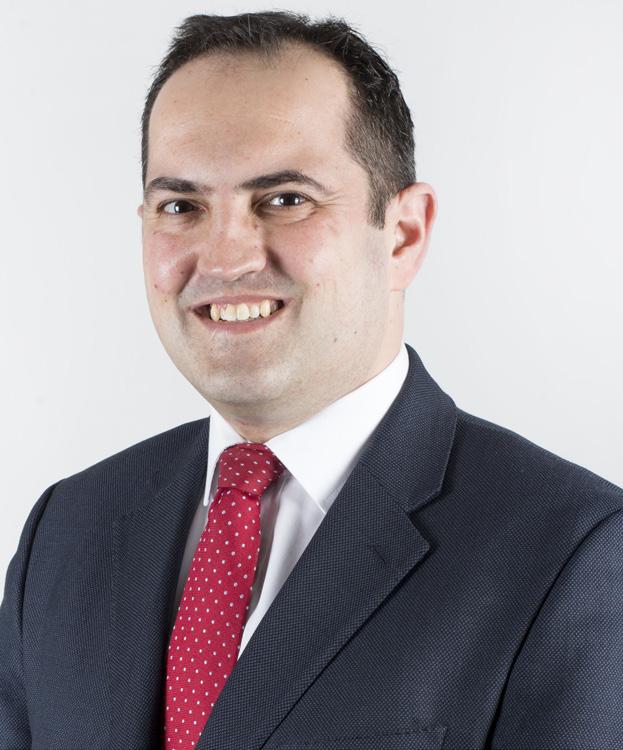
3 minute read
Modern slavery – what employers need to know
By Paul Kelly
THE BBC recently reported that the number of modern slavery cases reported within the UK care industry has more than doubled in the past year1, with 109 potential victims between January and March who were exploited for personal or financial gain.
This is twice as many as the same period in 2022. But what does this mean for social care employers? Let me try to explain what the Act is and how care employers can use it to protect and support anyone working in the sector who is being exploited through slavery.
What is modern slavery and The Modern Slavery Act?
Modern slavery can be defined as someone who is moved by force, fraud, coercion or deception to be exploited.
Globally, almost 50 million people currently live as slaves, and in the UK alone there are estimated to be more than 100,000 victims of modern slavery2
The Modern Slavery Act was created in 2015 to consolidate historic trafficking and slavery offences to combat modern slavery in the UK. The Act focuses on protecting victims as well as punishing those responsible for forced labour, slavery or human trafficking.
From an employer’s perspective, the Act was brought in to ensure that businesses across every sector, including social care, are transparent about the way they tackle modern slavery and human trafficking.
What does the Act ensure?
Section 54 of the Act requires all commercial organisations with a global annual turnover above £36million to prepare a slavery and human trafficking statement each financial year, ensuring that businesses are transparent about the ways they are tackling modern slavery.
The statement must set out all the required steps that businesses take to make sure human trafficking has not occurred within its supply chain or the business in general. Organisations who turn over less than £36million annually can decide whether or not they wish to make a voluntary statement.
The Act ensures victims receive protection by: n Creating a statutory defence for victims of modern slavery so that they are not inappropriately criminalised. n Giving the courts new powers to order perpetrators of slavery and trafficking to pay Reparation Orders to their victims. n Providing child advocates to support child victims of trafficking. n Extending special measures so that all victims of modern slavery are sufficiently supported through the criminal justice process. n Providing statutory guidance on victim identification and victim services, including an enabling power to put the relevant processes on a statutory basis. n Introducing protections for victims of abuse on an overseas domestic worker visa.
What does the Act mean for businesses?
Currently, there are no criminal penalties for organisations who fail to implement a modern slavery statement, although the Secretary of State can in some cases apply to the High Court for an injunction to require compliance.
A failure to comply with a High Court order could result in an unlimited fine being issued.
Businesses subject to the Act need to ensure that any modern slavery statement they produce is published on the website. A failure to publish the statement is itself a failure to comply with the Act and exposes the business to the risk of sanction, such as a fine being issued.
Aside from the financial penalties a business could face for failing to comply with the Act, the reputational damage a business would be exposed to if it fails to prevent modern slavery could be incalculable.
Despite the statement having no criminal penalties for non compliance, it is best advised for businesses to comply to prevent reputational damage.
The Act extends to both England and Wales, but some provisions apply in Scotland and Northern Ireland.
The 2019 Global Slavery Index placed the UK as the country taking the most action to respond to modern day slavery, along with France, Netherlands and Australia who all introduced legislation targeting slavery and trafficking within the last 10 years.
References n Paul Kelly is the head of employment law at Blacks Solicitors.
Source one: BBC, Modern slavery gangmasters exploit care worker shortage, July 25th, 2023.
Source two: Justice & Care.
One of the oldest people alive in the UK – a Hampshire great grandmother – has celebrated her 110th birthday in Fareham. Annie Samphire marked the milestone with a party at Cams Ridge, where she lives, surrounded by other residents from the care home and her family, including her daughters Betty and Margaret. Annie credits her longevity to plenty of long walks and indulging her sweet tooth. She never owned a car and often enjoys an ice cream or chocolate bar before settling down to a night’s sleep. Until recently, Annie was the oldest person in the county, but a usurper who is just six months older than her moved to Hampshire.
Praise across the board for home
PRESTON House, part of the Holmes Care Group, received glowing feedback in a recent inspection.
The Fife care home received fours and fives throughout the categories, with the Care Inspectorate rating the environment of the home and the levels of ‘compassion, dignity and respect’ as ‘very good’.
The representatives from the Care Inspectorate concluded that the staff are “kind, compassionate, friendly, happy and warm”, and committed to providing a “high standard of care”









